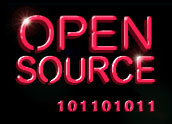
Sun Microsystems is considering the possibility of releasing OpenSolaris, the open source version of its Solaris operating system, under the latest version of the GNU GPL (general public license), the primary free software license.
Up to now, OpenSolaris has been offered only under the Common Development and Distribution License (CDDL), which is also approved by the Open Source Initiative (OSI).
Keeping Pace
Over the past several years, the Santa Clara, Calif.-based company has struggled to keep pace as cheaper Intel-based servers running GNU/Linux have picked away at the market share of Sun’s Solaris operating system.
Faced with these problems, Sun has been reinventing itself in a surprising way — as an open source company, said Gordon Haff, principal IT adviser at Illuminata.
“Sun has had a lot of open source components from the beginning as part of a continuing Solaris play,” Haff told LinuxInsider. “Open source Solaris has been more successful then many people expected.”
However, said Haff, it is clear that open source Solaris hasn’t yet established itself as the primary development environment.
Shift in Strategy
Because much of the company focus has been on Solaris, Sun’s version of Unix, the release of OpenSolaris in 2005 marked a major shift toward open source strategy, Haff noted.
That strategy crystallized even more last year, when Sun announced it would release Java under the GNU GPL.
The New GPL
The move comes less than two months after the Free Software Foundation (FSF) released the third discussion draft of the GNU General Public License Version 3 (GPLv3) on its Web site.
GPLv3, the first upgrade of the document in 16 years, is a direct response to several industry developments, including a controversial 2006 distribution pact between Microsoft and Novell that highlighted interoperability and smooth coexistence between Windows and Suse Linux.
The intent of GPLv3 is to “negate part of the harm of the Microsoft-Novell deal,” according to the FSF, and to ensure that similar deals don’t cut into the open source market.




















































